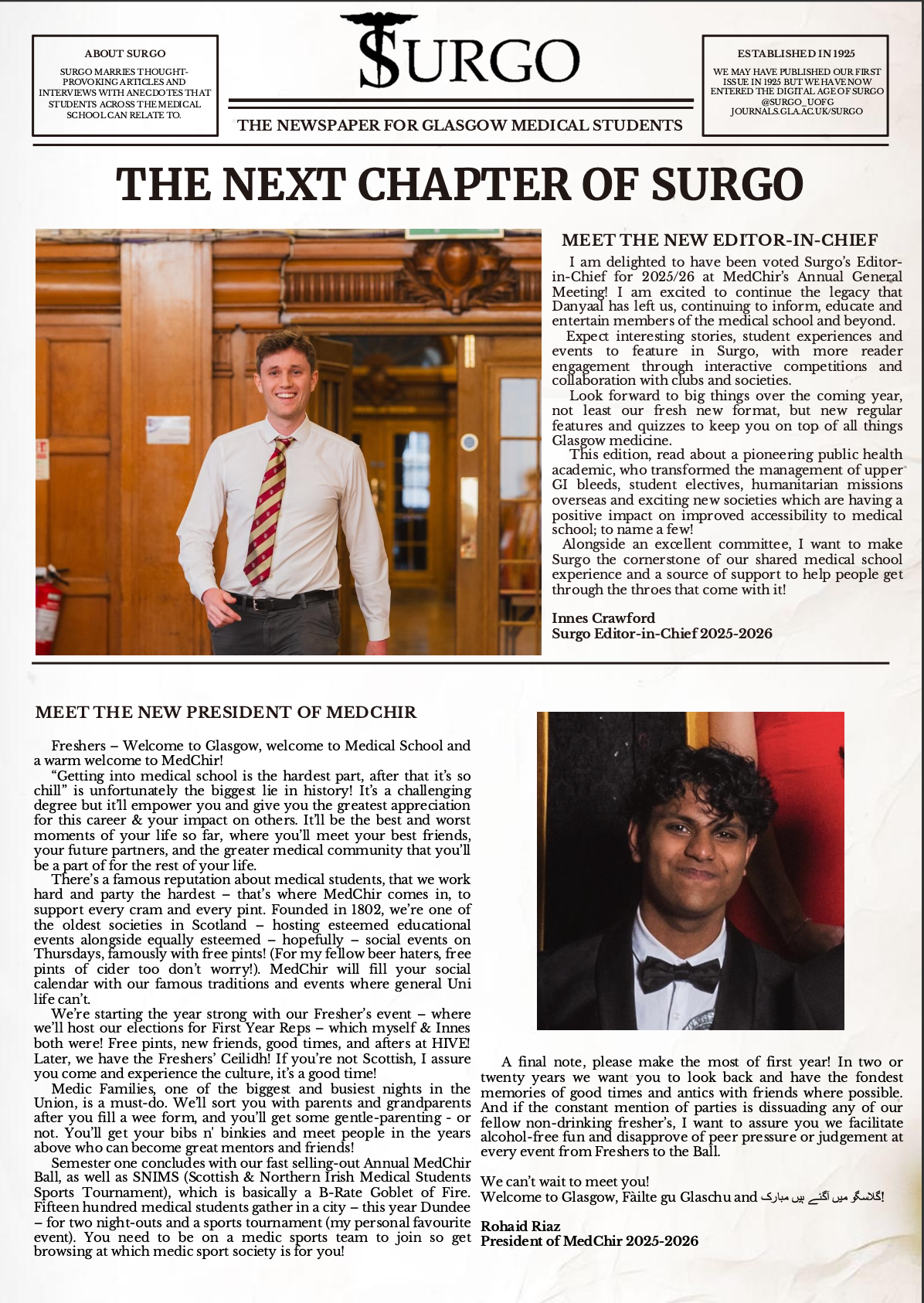Surgo Meets Dr Oliver Blatchford
DOI:
https://doi.org/10.36399/Surgo.3.646Abstract
This issue, we speak to Dr Oliver Blatchford of the Glasgow-Blatchford Score (GBS). Published in the Lancet (2000), the Glasgow-Blatchford score has had a significant impact on the management of patients with upper GI bleeding by improving risk stratification, guiding patient care, and optimising resource allocation.
1) Dr Blatchford, since it is graduation season when we meet, please tell us a little of your career after you qualified MBChB and why you chose the specialty you did.
I had great fun during my career from a variety of different roles, responding to different challenges. From Obstetrics to General Practice to Public Health to Health Protection Scotland – from dealing with CJD to Legionella to TB and COVID. There’s always something new to be done, and it’s always FUN!
I like interacting with people and coming up with the best patient-centred care together with the people being treated. Obstetrics allowed that and it’s about new life and caring for healthy people. Then I was diagnosed with melanoma by Professor Rona Mackie – that changes one’s perspective! So I moved into GP in Possilpark – where I thoroughly enjoyed figuring out every day “What can I do to help my patients?”. Gradually it felt that my work became more about money than people, so I left my partnership without a back up job to turn to. I was very lucky to end up in a Research fellow post with the Royal College of Physicians and Surgeons in Glasgow.
That six months’ post extended to two years – leading to the GBS and an MD (after having already got my PhD investigating the cause of variation in emergency admissions and a Masters in Public Health). I am currently studying with the Open University for a degree in Mathematics…but that’s another story!
2) Can you share some of your career highlights?
I am not going to bore you with what I did – the important message is: IT WAS FUN!
Despite having never looked down an endoscope, the GBS is of course one of my career highlights. It has made a difference, saving NHS resources by using evidence to predict safely which patients with upper GI bleeds are low risk and do not need admitting to hospital. It is the first one to actually work! Even today people write to me from all around the world to try and make a “GBS Mark II”, a better prediction tool, it hasn’t quite come to pass. Maybe one day, someone will come up with the maths to predict this better.
While the GBS gives me quiet personal satisfaction in having made a difference in patient care. It is nonetheless fun to see the change in medical students’ or gastroenterologists’ faces when they finally twig who I am.
3) Tell us a little of your time as a student at Glasgow University, especially about your time in MedChir?
I came to Glasgow as a transfer student from South Africa. I was encouraged to sign up as the Year Rep in first year and was a year rep every year after that until Final Year when I was Treasurer of MedChir. I met lots of people and socialised in the many bars and pubs along Byres Road. I learnt to wind surf at Lochwinnoch when I was a student – we only stopped when our baby arrived. I walked a lot – till this day I belong to a walking club where I walk at least 10 -15km once a week.
4) What would you say to your medical student self if you had the chance?
“Keep on going. It is always going to be fine! If things feel like it’s going wrong, something WILL work out. Be positive! Be a glass half full person. Believe in yourself!”


